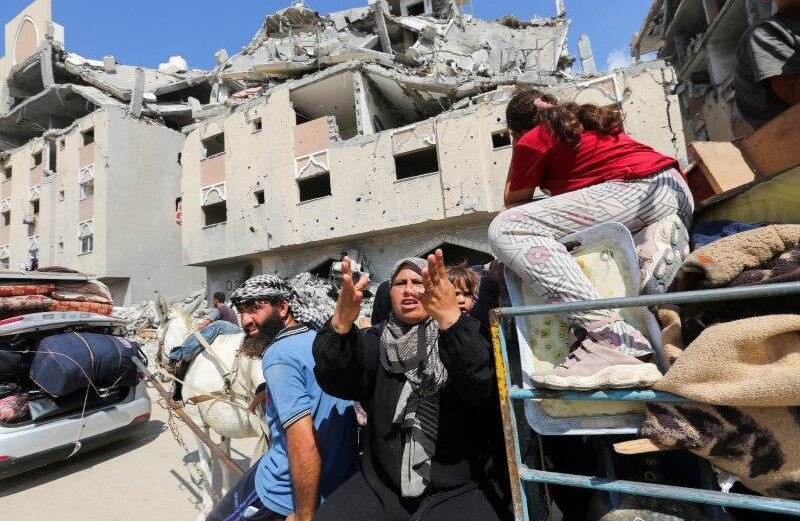The future of ceasefire negotiations and a potential hostage release deal in Gaza hangs in the balance following the withdrawal of both U.S. and Israeli delegations from the latest round of talks in Qatar.
On Thursday, U.S. envoy Steve Witkoff announced that Washington had pulled its team from Doha, citing what he described as a “lack of seriousness” from Hamas in responding to a recent proposal that had been approved by Israel.
Witkoff criticized the Palestinian militant group’s position, suggesting it indicated “no desire to reach a ceasefire,” and added that Hamas was not acting in a coordinated or trustworthy manner.
Israel also confirmed that its negotiators had left Qatar to return home for consultations.
However, a senior Israeli official clarified to local media that the talks had not “collapsed” and that discussions would likely resume once key issues were reassessed.
Despite the tension, Hamas expressed surprise at Witkoff’s remarks, calling them “negative and unexpected.”
A Hamas representative stated that mediators from Qatar, Egypt, and the U.S. had informed them that Israeli negotiators were expected to return to Doha next week, though no exact date was provided.
At the heart of the deadlock are several unresolved issues, including the complete withdrawal of Israeli forces from Gaza.
Other unresolved issues were the delivery and distribution of humanitarian aid, and a commitment to a permanent end to hostilities.
While all parties have agreed to the need for a ceasefire, bridging the gap on these matters has proven elusive.
Witkoff, in his statement, said that the U.S. would now explore other strategies to secure the release of hostages and work toward greater stability in Gaza.
He lamented what he described as Hamas’s “selfish” behavior and reaffirmed the U.S. commitment to a peaceful resolution.
Israeli Prime Minister Benjamin Netanyahu’s office also issued a statement saying that the decision to recall the Israeli delegation was in response to Hamas’s latest proposal but did not provide further detail.
A senior Israeli source in Doha later acknowledged the impasse, describing Hamas’s stance as obstructive, though stopping short of calling the negotiations a failure.
Meanwhile, a Hamas official reiterated the group’s readiness to continue negotiations, saying it remained committed to pursuing a deal that would result in a lasting ceasefire and address the humanitarian crisis in Gaza.
One of the key sticking points remains a U.S.-backed framework for a 60-day truce that would involve the staggered release of 10 Israeli hostages believed to be alive.
Also included are the bodies of 18 others, in exchange for Palestinian detainees held in Israeli prisons.
Hamas is currently believed to be holding around 50 hostages, with at least 20 confirmed alive.
A senior Palestinian official told the BBC earlier this week that their latest proposal focused on three core demands:
- a clear framework for aid distribution,
- detailed maps outlining Israeli troop withdrawals, and,
- an assurance that any temporary ceasefire would lead to a permanent halt to the war.
In Israel, frustration is mounting.
Families of the remaining hostages voiced alarm over the withdrawal of negotiators, accusing the government of prolonging the ordeal.
“Each day that passes puts the hostages at greater risk,” said a spokesperson for the Hostages and Missing Families Forum.
Mass protests erupted Thursday evening in Tel Aviv, where relatives of hostages demanded urgent action.
Vicky Cohen, mother of 21-year-old soldier Nimrod Cohen, told the crowd that partial deals risked leaving loved ones behind.
“Only one thing separates us from Nimrod,” she said. “The end of this war.”
Tensions within the Israeli government also surfaced after far-right Heritage Minister Amichay Eliyahu claimed Israel was “rushing to wipe out Gaza.”
Prime Minister Netanyahu distanced his administration from those comments, emphasizing that Eliyahu does not represent the government’s official position.
On the ground in Gaza, the humanitarian crisis is worsening.
The Hamas-run health ministry reported at least 48 malnutrition-related deaths this month, including 20 children.
Aid organizations such as Médecins Sans Frontières (MSF) warned that food and medicine shortages are now reaching critical levels, with one in four children under five showing signs of malnutrition.
Israel has denied responsibility for the food crisis, placing blame on Hamas.
The blockade imposed in early March and the subsequent military escalation have disrupted essential aid flows, and though restrictions have since eased slightly, the situation remains dire.
Israel’s military campaign began in response to the October 7, 2023, Hamas-led assault on southern Israel, which left approximately 1,200 dead and 251 taken hostage. Since then, over 59,000 people have been killed in Gaza, according to its health authorities.







